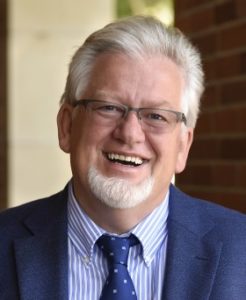USC experts discuss the flu, the new coronavirus, and impacts on business and behavior
Many unknowns surround the new coronavirus, COVID-19, which has killed thousands of people, mostly in China. Will it become a worldwide pandemic? What’s the risk to my family? It’s already disrupting business — what will it do to the economy? Taking steps to avoid getting seasonal flu also will protect against COVID-19 if it becomes widespread. USC experts advise on avoiding infection as well as how the COVID-19 outbreak is impacting business and human behavior.
Contact: Leigh Hopper (310) 308-0405 or lhopper@usc.edu
 Fear spreading faster than the virus itself
Fear spreading faster than the virus itself
Norbert Schwarz, a Provost Professor of psychology and marketing at the USC Dornsife College and USC Marshall School of Business, is an expert in consumer judgment and decision making:
“And as the New York Times observed, the fear of the virus may spread faster than the virus itself. Unfortunately, that fear will also spread to totally unrelated domains of life. A decade ago, the threat of swine flu not only increased Americans’ concern about getting the flu — it also increased the perceived risk of getting a heart attack, dying in an accident or being the victim of crime.
“Once the world feels like a dangerous place, where bad things can happen any moment, fear knows few limits.”
Contact: Norbert.schwarz@usc.edu or (213) 740-2223
Stay home if you’re sick
Emi Minejima, an assistant professor at the USC School of Pharmacy, is an expert in infectious diseases treatment and infection control:
“It’s very important to stay home when you are feeling sick and especially when you are symptomatic with cough, runny nose, and fevers. Depending on what you are sick from, you can be contagious to those around you and cause illness in those you have contact with. It’s also important to do appropriate hand washing when you are sick.
“LAC-USC Medical Center has an active infection control department to protect the patients and staff from transmission of infectious disease. We are following CDC recommendations on appropriate screening, triage, and assessment of potential cases. We are also following appropriate isolation precautions including using a negative pressure room, and protective equipment for the staff who are caring for any cases, as per recommended by the CDC.”
Contact: minejima@usc.edu, or Leigh Hopper (310) 308-0405 or lhopper@usc.edu
 Virus is producing ‘end-to-end disruption’
Virus is producing ‘end-to-end disruption’
Nick Vyas, the executive director of USC Marshall’s Center for Global Supply Chain Management, is an expert in global trade, manufacturing and business operations:
“In the midst of trade wars and geopolitical tension, the coronavirus may become the straw that breaks the camel’s back. Because it is China and it’s a transparency-related concern, there is added uncertainty and fear. Given how companies have streamlined things and reduced inventory and grown more globally intertwined, this outbreak produces end-to-end disruption. It will force companies to factor the cost of failure into their calculation, and might well strengthen the case for more American onshore or near-shore operations.”
Contact: nick.vyas@marshall.usc.edu or (213) 821-4079
Wash your hands, top AND bottom
Emily Blodget, an assistant professor of clinical medicine at Keck School of Medicine of USC, is an expert in infectious diseases:
“The flu is quite severe if you are elderly, young or immunocompromised. It starts as an upper respiratory infection, which causes inflammation in the lungs, making you more susceptible to a bacterial infection like staph or strep. When people die, usually it’s because of pneumonia.
“Proper handwashing is the best way to protect yourself. A lot of people just wash the palms, not the top. They also miss the area around the thumb and between the fingers. You should use enough soap to cover your hands and wash them long enough to say your ABCs.”
Contact: eblodget@usc.edu, or Leigh Hopper lhopper@usc.edu or (310) 308-0405
 Timely information quells fears
Timely information quells fears
Daniel Bennett, an assistant professor of economics at USC’s Center for Economic and Social Research, recently wrote about how people react to a novel epidemic:
“Novel outbreaks like the Wuhan coronavirus occur regularly throughout the world. Previous examples include the 2013-2015 outbreak of Ebola in West Africa, several outbreaks of Swine Flu in South Asia in the past decade, and the 1918 Spanish flu, which killed around 50 million people (more than the war preceding it).
“In a novel epidemic, the public must assess and decide how aggressively to avoid a new risk. People are familiar with the threats posed by perennial health risks like heart attacks and traffic accidents. In a novel outbreak, it is unclear how the disease is transmitted, how severe the symptoms are, and what prevention strategies are most effective.
“The policy lesson is to communicate clearly while preserving credibility. People look to peers when credible information is missing. Policymakers can quell public fears by providing timely and accurate information.”
Contact: bennettd@usc.edu or (401) 935-4582
Watch a recent USC Facebook Live video featuring USC Vice President of Student Affairs Winston Crisp and Chief Health Officer Dr. Sarah Van Orman discussing news and updates on the new coronavirus, addressing concerns and rumors within the university community.



